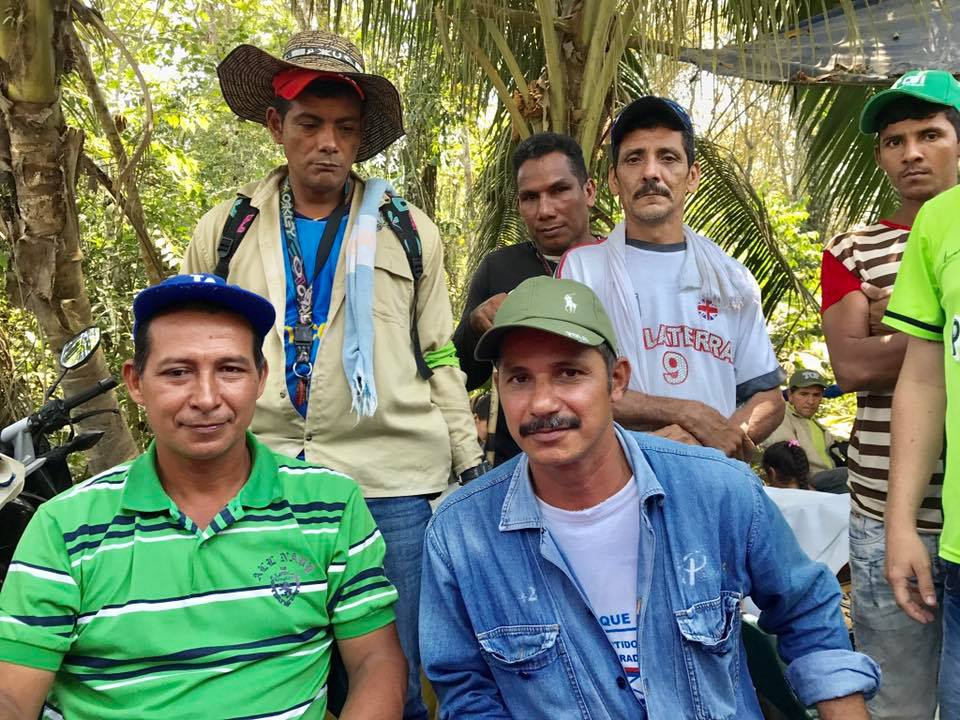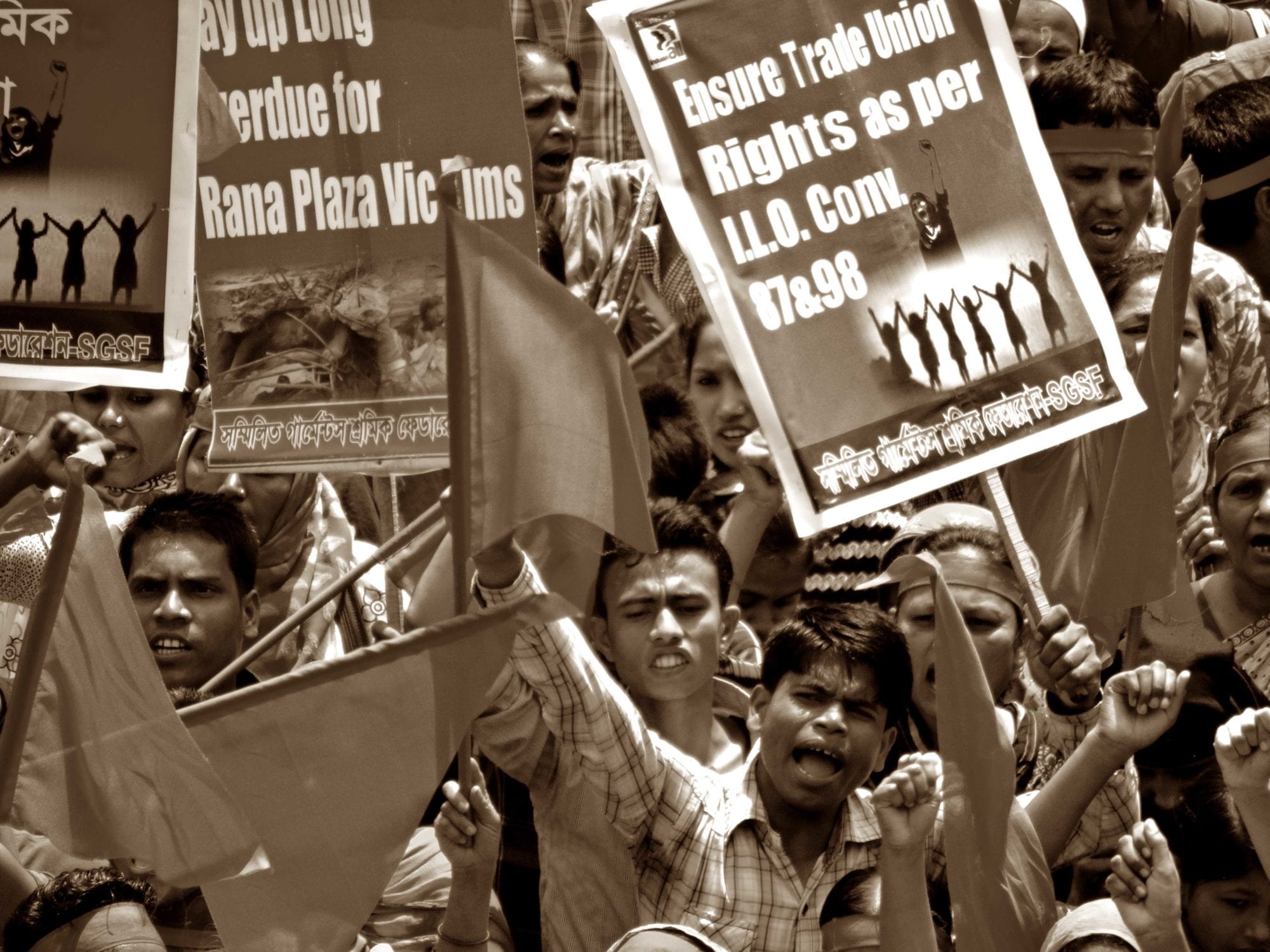An independent,12-month monitoring program by a coalition of worker rights advocates in Kyrgyzstan found that the lives and safety of working people are at significantly higher risk than official data indicates—requiring urgent changes to the country’s occupational...
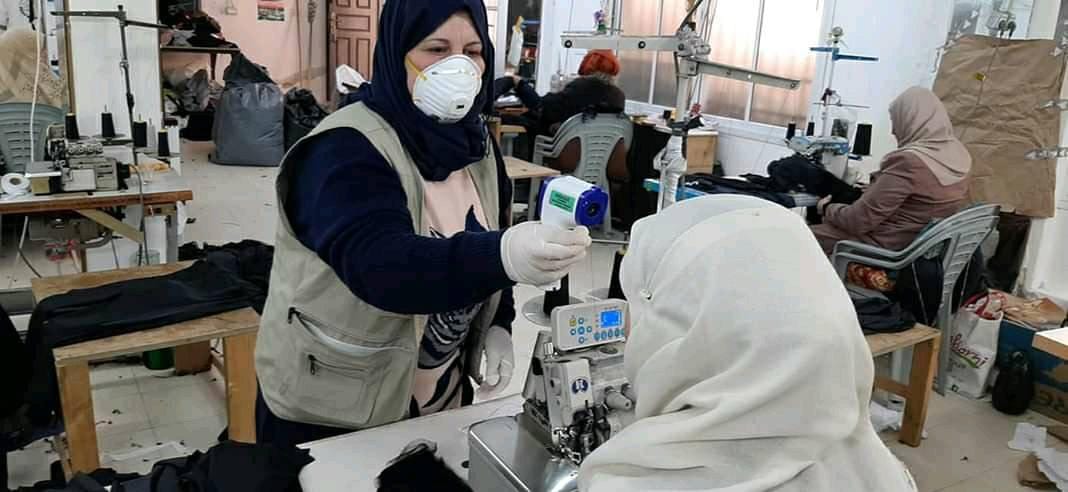
During the COVID-19 pandemic, members of the Palestinian General Federation of Trade Unions, a Solidarity Center partner, tested workers for fever. Credit: PGFTU
Each year, more than 2 million workers die on the job—more than 6,000 a day worldwide. Hundreds of millions more workers a year suffer from non-fatal job-related accidents and illnesses.
The global coronavirus pandemic highlighted and exacerbated the vast inequities facing working people as many risked exposure to the virus without protective safety equipment, tending to sick patients, staffing grocery stores and driving public transport.
In partnership with the Solidarity Center, unions negotiated stepped-up protections and improved wages for workers who risked their lives on the front lines of the crisis, and supported unions as they worked with governments and employers to ensure those furloughed or laid off during the pandemic received wages and social protections such as access to food distribution and unemployment compensation.
Around the world, the Solidarity Center supports networks of unions that are pushing for workplace health and safety measures, such as in Serbia, where unions created a national network of trade union activists to improve workplace safety and health monitoring, and bargain collectively with employers to expand such protections for all workers, regardless of whether they are union members.
On April 28, workers and worker rights activists like the Solidarity Center observe World Day for Safety and Health at Work, an annual day of remembrance for workers who died or were injured on the job and a day to renew the struggle for decent work—family-supporting wages, sick leave and other benefits and safe and healthy working conditions.
Colombia Palm Workers Win Landmark Agreement
Some 750 palm workers at Colombia’s largest plantation yesterday signed a landmark agreement with their employer, Indupalma, culminating a years-long effort in which many workers risked their lives to achieve decent wages and safe working conditions. The workers...
Bangladesh Garment Employers Retailate Against Workers
Tens of thousands of Bangladesh garment workers waged weeks-long strikes in December and January to protest low wages and unequal pay increases—and now workers say factory employers are using the walkouts to further repress their efforts to form unions and...

The True Cost of Shrimp (2008)
In little more than 30 years, the shrimp industry has been revolutionized through an unprecedented increase in efficient production, resulting in tremendous profitability for producers. But the “shrimp boom” is sustained through a staggering, largely hidden, cost to...

The Struggle for Worker Rights in Guatemala (2008)
Guatemala’s laws include unreasonable restrictions and requirements on union membership and the right to strike. Women workers are usually paid less than their male counterparts for work of equal value. Indigenous workers and rural workers, with few legal rights, are...
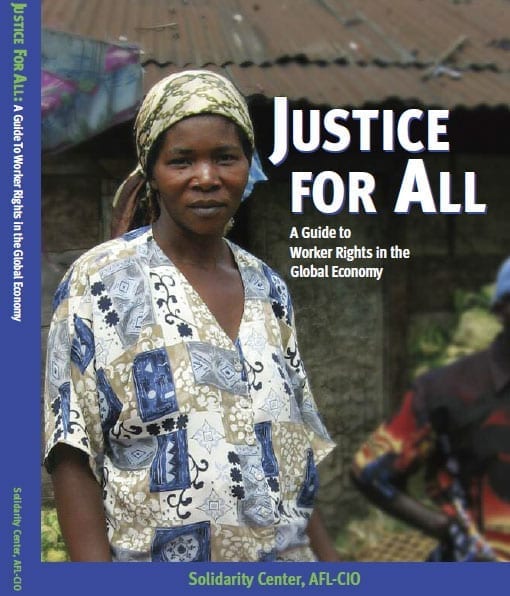
Justice for All (2008)
"Justice for All" examines the effects of global economic integration in the late 20th century on worker rights, including the growth of the informal economy and migration and human labor trafficking, and looks at how government, corporations and unions can help...
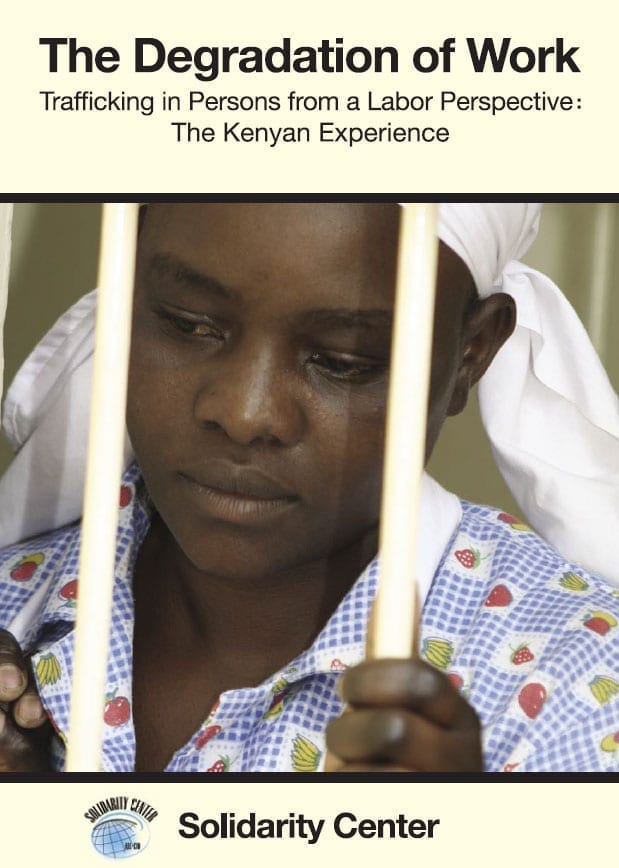
Trafficking in Persons from a Labor Perspective: The Kenyan Experience (2007)
Trafficking in Persons from a Labor Perspective: The Kenyan Experience provides readers with a general overview of human trafficking in persons from a labor perspective, with a focus on universal and global themes as illustrated by the experiences in Kenya. The...

Solidarity Center Gender Programming Manual (2006)
This 70-page handbook incorporates staff insights and experiences into checklists and tools needed to develop programs that redress gender inequity in the workplace, promote leadership roles for women, and move closer to achieving full worker rights. Download here....
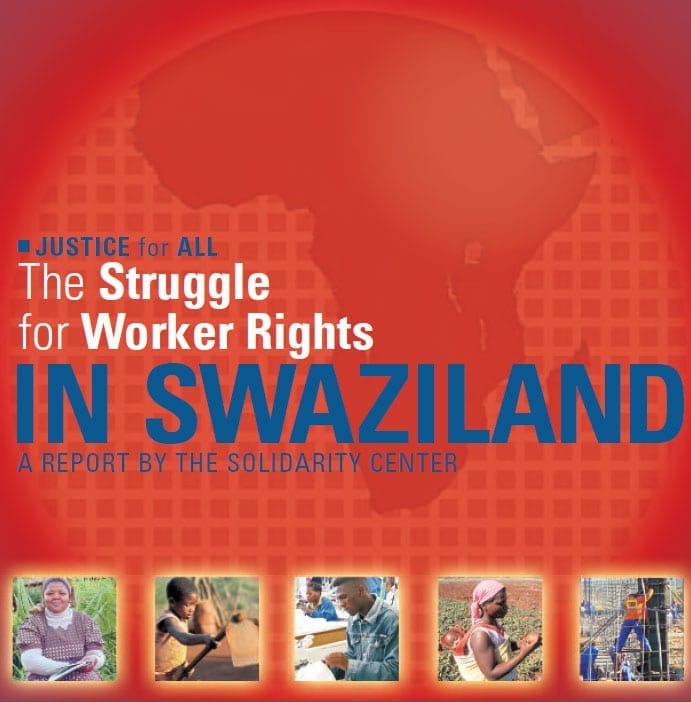
The Struggle for Worker Rights in Swaziland (2006)
Swazi workers face many challenges, especially women workers, who have a low status in Swazi society and make up a large percentage of the workforce, yet endure discrimination and workplace sexual harassment and violence. Improvements at the workplace cannot be...


